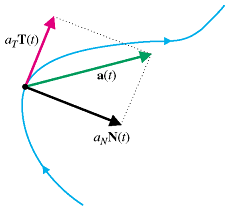Definition
Basically, an increment is a slight change in a function.
Alternate Definition
Basically, our goal is to rewrite the expression above, because that is how we will define differentiation.
You can prove that, but it's too long to type out. Basically, you just apply the Mean Value Theorem on both x and y, and you get that.
Example
David Witten
